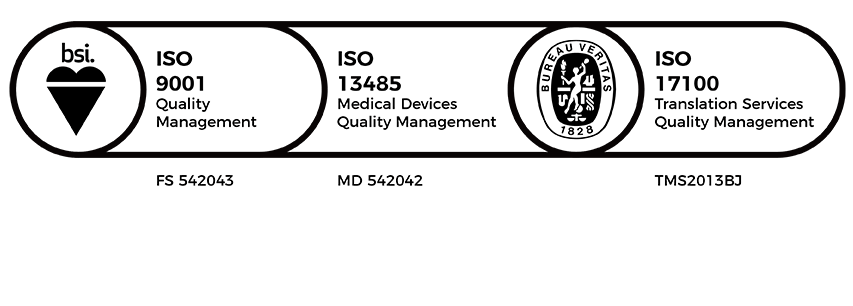Oromo Translations (OM)
We provide the highest-quality Oromo translations for your businesses’ needs to access and succeed in Ethiopia, Kenya, and Somalia’s markets.
Professional And Accurate Localization Solutions
For businesses expanding to regions in Ethiopia, Kenya, Somalia, and neighboring areas within the Horn of Africa, Oromo translations often play a critical role in successfully engaging with the 37 million people who speak Oromo natively. Used as a lingua franca across Ethiopia and parts of Kenya and Somalia, Oromo is the second most widely spoken language in Ethiopia and the fourth most widely spoken language in Africa. In addition to native speakers, people who speak closely related languages such as the 722,000 people who speak Borana and Orma in Kenya, also speak Oromo as a second language, making Oromo translations key for engaging customers all throughout the Horn of Africa. Linguistic accuracy, in-depth cultural understanding, subject matter expertise, and localization best practices are all necessary components in ensuring success for any product or service entering the local market. Additionally, high-quality, consistent Oromo localization solutions require advanced AI translation technology combined with native, in-country linguists for a quick turnaround time.
Oromo Translations:
Transferring Rich Oral Tradition into Script
As a product of a highly developed oral tradition by the Oromo people of Oromia, Ethiopia, Oromo was largely an unwritten language until the 20th century. While scholars attempted to write the language in Latin script during the late 1800s, it was in the 1950s that the Sapalo script was invented specifically for the Oromo phonology by Sheik Bakri Sapalo. Today, Oromo is most widely written in Qubee, a Latin script formally adopted in 1991, that is said to have been used to write more texts in the Oromo language between 1991-1997 than in the previous 100 years. Oromo has since become the official language of primary education in the Ethiopian regions of Oromia, Dire Dawa, Harari, Addis Ababa, and Benishangul-Gumuz, the Oromia zone of the Amhara region, but has various officially recognized dialects throughout these regions. These dialects can be organized into five general dialects such as West Central Oromo, Southern Oromo, Eastern Oromo, Orma, and Waata. With so many different cultural nuances that vary across regions, the importance of understanding local communities is critical for ensuring success in whatever product or service is entering the market. Whether you are seeking Oromo to English translations or English to Oromo translations, it is essential to ensure the cultural appropriateness and local sophistication of every project entering or expanding from Ethiopia, Kenya and Somalia ’s markets.
Through our in-country, subject matter expert linguists, and with over 20 years of experience, CSOFT understands the importance of distinguishing different dialects of Oromo depending on the project.
CSOFT specializes in all types of Oromo translation solutions, including:
- Orma (Munyo, Orma, Waata/Sanye)
- Boranaa-Arsii-Guji Oromo (Southern Oromo, including Gabra and Sakuye dialects)
- Eastern Oromo (Harar)
- West Central Oromo (Central Oromo and Western Oromo, including Raya, Wello, Mecha/Wollega, Tulema/Shewa)
- Waata
CSOFT provides professional and technically accurate Oromo translation solutions for all business sectors, including:

Quality Assurance
Through our innovative cloud-based technology, CSOFT offers an online translation management ecosystem for one central location to leverage both translation memory as well as terminology management in real time.
Professional, high-quality localization of a service or product is critical for translation solutions in global markets. CSOFT understands the importance of accurate translation, which is why we have developed a process for quality assurance to ensure that any project that is translated meets quality standards in a timely manner that is also cost effective. Our advanced translation technology management system allows for translation projects remain in one centralized location, updated in real time, to ensure that every step of the way, CSOFT has you covered. Additionally, we are certified in ISO 17100:2015, ISO 9001:2015, and ISO 13485:2016, and our operations leverage best practices of ISO 27001 to ensure our customized solutions meet global regulatory requirements.
Learn more about our quality assurance process.
Oromo Translations for Diverse Content
CSOFT has extensive experience localizing a variety of content from and to Oromo, including:
Utilizing our translation tools, we are able to process a variety of file types such as:
- MS Word
- MS Excel
- PowerPoint
- JAVA
- InDesign
- FrameMaker
- HTML
- XML
- DITA
Data Security
CSOFT has implemented many security procedures throughout our organization to ensure client proprietary information is always held in the highest confidence. We have well-documented and fully traceable information security policies, checklists, and quality records. CSOFT understands the importance of security to our clients, and we take nothing for granted when confidentiality is a concern. All our data and security processes comply with our certified ISO standards 17100: 2015, 13485:2016, and ISO 9001:2015. We also leverage best practices from ISO 27001.
Learn more about how we protect your data.

Speak to us today!
For more information on how CSOFT can assist you with your translation requirements, please contact us through this website, or call us at +1-617-263-8950.
Are you conducting a translation RFP or tender? We love RFPs.

